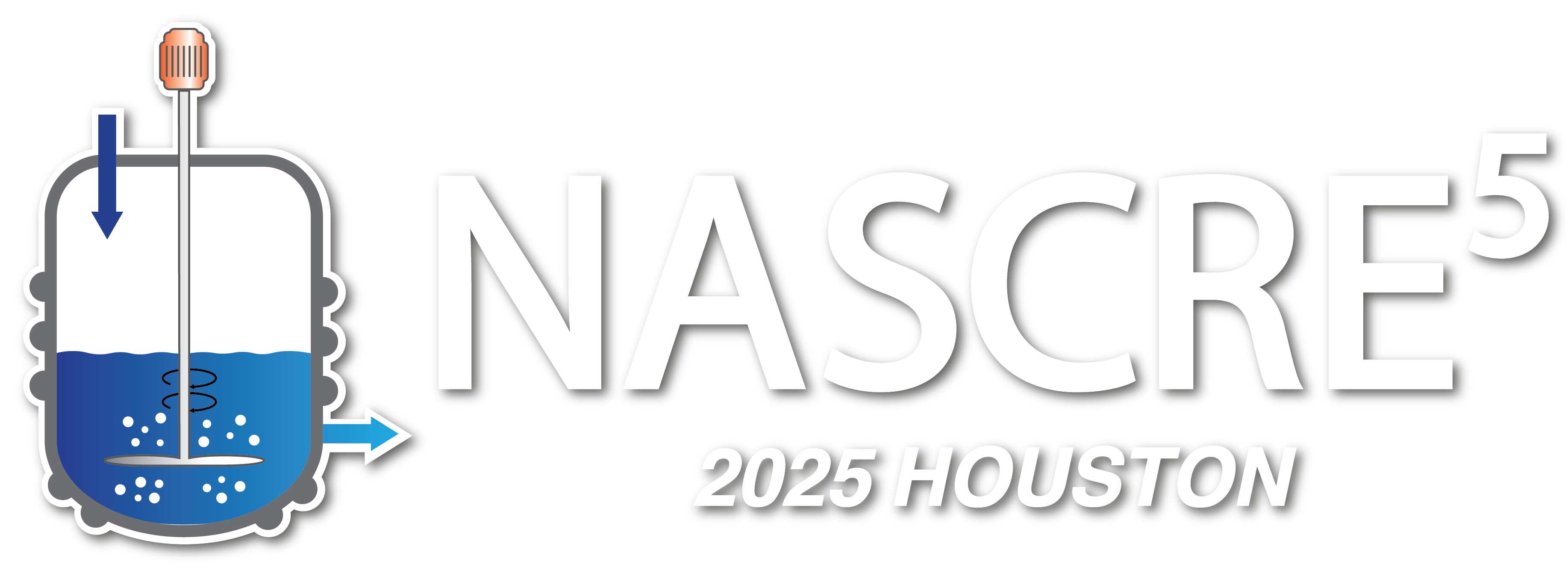Speakers and Panelist
Plenary Speakers

Paul J. A. Kenis
Chemical and Biomolecular Engineering, University of Illinois Urbana-Champaign
Towards Electrifying Chemical Manufacturing Using Electrolysis
The need to reduce global CO2 emissions in chemical manufacturing is fueling the exploration of various more sustainable, often electrified approaches to drive conventional or new chemical conversion and separation processes. Electrolysis, the electrochemically-driven conversion of substrates, has gained significant attention of the chemical reaction engineering community. While water electrolysis for hydrogen production has been a major focus of research and commercialization for over 20 years now, electrolysis of other feedstocks is significantly less developed.
This presentation will explore three directions: (i) The evolution of CO2 (and CO) electro-reduction to a variety of interesting intermediates, including CO, formate, acetate, ethanol, and ethylene; (ii) The evolution of electro-oxidation of organic substrates derived from biomass; and (iii) The oxidation of ammonia - a potential carrier of hydrogen for long-distance transport - coupled with hydrogen evolution, with the net result of liberating the hydrogen at the point of destination.
Each area will explore aspects of electro-catalysts, electrodes, and electrolyzer configurations able to perform the chemical conversions of interest. Challenges, and advances that overcome the challenges, associated with moving beyond catalyst development, to scaling of electrodes and enhancing their durability, as well as to selection of scalable electrolysis cell configurations will be covered. Furthermore, opportunities for co-conversion, where two desired chemical conversions are coupled, e.g., CO2 reduction or hydrogen evolution on a cathode with glycerol oxidation on the cathode, will be explored as ways to improve overall techno-economics and life cycle aspects.

Linda J. Broadbelt
Department of Chemical and Biological Engineering, Northwestern University Evanston, IL 60208
Developing Strategies for Polymer Redesign and Recycling Using Reaction Pathway Analysis
The current lack of sustainability of and the limited portfolio of recycling processes for synthetic polymers have posed serious threats to the environment. Using reaction pathway analysis, we are pursuing a portfolio of strategies for redesign and recycling of polymers for sustainability. Pyrolysis is a promising method for resource recovery from plastic waste that is compatible with current petrochemical infrastructure that thermally converts polymers in the absence of oxygen into valuable chemical feedstocks and monomer. To provide further insight into polymer pyrolysis, a greater understanding of the mechanistic and kinetic details of the underlying reaction network is needed. To handle the complexity of mechanistic modeling of polymer degradation, we have developed both continuum and kinetic Monte Carlo (kMC) models. Alternatively, redesign efforts focusing on polymers that can be reused and recycled to monomers can lead to sustainable solutions for the plastics waste problem. One pathway to success is to identify bioprivileged molecules, biology-derived chemical intermediates that can be efficiently converted to a diversity of chemical products, including both novel molecules and drop-in replacements, and molecules emanating from them that can be used as monomers leading to recyclable polymers. We have developed a framework for molecule discovery and reaction pathway design that is automated and flexible and can be used to screen for bioprivileged candidates and target molecules. The application to discovery of known and novel monomers for poly(hydroxyurethanes) that are derived from biobased molecules and lead to recyclable materials will be discussed, and computational methods to evaluate the recyclability of different polymers will be outlined.

Shailendra Bordawekar
Ph.D. Development Sciences, AbbVie Inc., North Chicago, IL
Current Trends and Opportunities for Reaction Engineering to Impact the Pharmaceutical R&D Pipeline
The pharmaceutical R&D pipeline has rapidly evolved over the last decade. Focus on development of new modalities for advanced therapies and challenges with complex drug candidates has driven adoption of novel concepts and technologies in pharmaceutical development. Innovation is key to reduce development costs and shorten time to market. Automation, predictive modeling via first principles and AI-ML are becoming increasingly important to accelerate the development of patient-centric medicines by allowing more optimal routes to be implemented earlier in the development cycle. Further, robust processes for increasingly complex molecular moieties require innovation in both reactor design and reaction chemistry. To meet these needs, techniques such as photochemistry and electrochemistry can provide uniquely advantaged bond activation. Finally, novel modalities, such as antibody drug conjugates that can provide a potent payload to targeted cells, require understanding of both small molecules and biologics. Pairing reactor design fundamentals with mechanistic understanding of conjugation chemistry facilitates delivery of these therapies. This presentation will provide an overview of current opportunities and the application of these tools to drive pharmaceutical R&D in this ever-evolving landscape.
Invited Speakers
- Rajamani Gounder (Purdue)
- Ram Ratnakar (Shell)
- Chris Paolucci (University of Virginia)
- Fateme Rezaei (University of Miami)
- Gaurav Giri (University of Virginia)
- Neda Nazemifard (Takeda Pharmaceutical)
- Milad Abolhasani (NCSU)
- Michele Sarazen (Princeton)
- Bihter Padak (UC Irvine)
- Gina Noh (Penn State)
- Meenesh Singh (University of Illinois Chicago)
Invited Panelists
- Simon Bare (SLAC)
- Jean Tom (Princeton)
- Lakis Mountziaris (University of Houston)
- Kim McAuley (Queens University)
- Dan Hickman (Dow)
- Michael Harold (University of Houston)





